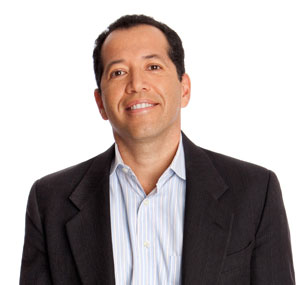Toronto lawyer Juan Carranza isn’t always the first port of call for his Spanish-speaking clients but he’s usually the last.

A number arrive at the door of his personal injury boutique as dissatisfied clients from Carranza’s unilingual English-speaking counterparts.
“What ends up happening in some other firms is that they have a law clerk or assistant who speaks the language of the clients but not the lawyer. Quite often, clients want to speak directly to the lawyer and sometimes there’s a sense they’re getting something less by communicating through a third person,” says El Salvador-born Carranza, founder of Carranza LLP.
“Using an interpreter is more cumbersome, there’s increased risk of mistakes being made, and the whole process takes longer for both lawyers and clients.”
His firm, which bills itself as Toronto’s “largest ethnic personal injury law firm,” has put language at the heart of its marketing effort. On its web site, it claims the ability to serve clients in 24 different languages. Almost all of the firm’s 12 lawyers are multilingual, speaking languages including Portuguese, Vietnamese, Tagalog, and Hindi.
“The vast majority of our clients speak a language other than English as their first language, so what we try to do is find a linguistic and cultural match for them,” says Carranza.
“It helps facilitate the building of trust between clients and lawyers and enables us to represent clients better by having access to information that may or may not come out if working through an interpreter.”
He says second languages are particularly useful for lawyers in large cities like Toronto because of the high proportion of foreign-born residents along with the nerve-wracking nature of legal problems.
“Most people in the city, even ones who are newcomers, develop a certain degree of fluency but it’s not the type of fluency that would make you feel comfortable in, for example, a discovery situation. As the degree of stress goes up, fluency goes down. If there’s an opportunity to communicate with a lawyer in your own language, that’s very valuable for a client,” says Carranza.
According to Jeff Fung, founder of lawyer referral service mylawbid.com, more and more lawyers are tapping into the marketing value of a second language. The ability to search lawyers by language spoken has been a key feature of his directory since its inception.
“There’s definitely an opportunity there,” says Fung.
“People are realizing that adding a language to your profile on our web site makes a difference. We can see what sort of searches bring people to our site and a lot of people are getting there by including language capability in their Google search, things like ‘Toronto real estate lawyer Italian.’”
But a second language can also be more than a business development tool, according to Fung. As part of his role on the board of directors at the Federation of Asian Canadian Lawyers, he’s been involved in its Bridge the Gap program that provides educational videos designed to introduce Asian newcomers to the Canadian justice system.
The videos are available in Korean, Mandarin, Cantonese, Vietnamese, Punjabi, and Tagalog. They provide legal information on youth criminal justice as well as the process at the Human Rights Tribunal of Ontario.
“I think it’s really important in terms of access to justice that in a multicultural society, we are able to match legal needs and give people an understanding of what’s going on. We want justice to be not only affordable but accessible,” says Fung.
At Pei-Shing Wang’s downtown Toronto family law practice, about a third of his clients communicate with him in Mandarin. He says a large part of his role is guiding them through an unfamiliar legal landscape.
“It’s not just pure legal questions. They can tell me what’s bothering them, and I can understand better where they’re coming form. The biggest item is probably the difference between the legal system and the culture because the people who speak Chinese usually are first-generation immigrants and they have a different set of values and a different understanding of how the system operates, which they carry with them. I need to tell them it’s not like that in Canada — this is how we do things here. I think it helps to put them more at ease when they understand a bit more about what’s happening.”
But it’s not just large cities where second languages are in demand. Wang says he gets calls from smaller towns hours outside Toronto where there are no local Mandarin-speaking lawyers or, if there is one available, the practitioner is uncomfortable taking a complicated family law case.
Orangeville, Ont.-based Suzanne Deliscar serves Spanish- and French-speaking clients in western Ontario.
“I think there is a need for it. . . . When you live in Ontario, there is an expectation that you know how to speak English but not everybody feels comfortable in English. Even when you speak it, I think it’s human nature to go with your native tongue when you’re expressing ideas,” she says.
Deliscar says a trilingual law practice has been her aim since she was 14 years old. After graduating high school in the French-immersion program, she learned Spanish at university and did translation work while completing law school. She maintains a legal translation business alongside her law practice and has taught language-training courses for people in various professions. She says she’d like to make it easier for people to find lawyers who speak their language and has started a lawyer-linguist forum on LinkedIn that has already surpassed 200 members.
“It’s a place where we can exchange ideas. We’re all legally and linguistically trained professionals and we all combine them in different ways,” she says.

 A number arrive at the door of his personal injury boutique as dissatisfied clients from Carranza’s unilingual English-speaking counterparts.
A number arrive at the door of his personal injury boutique as dissatisfied clients from Carranza’s unilingual English-speaking counterparts.